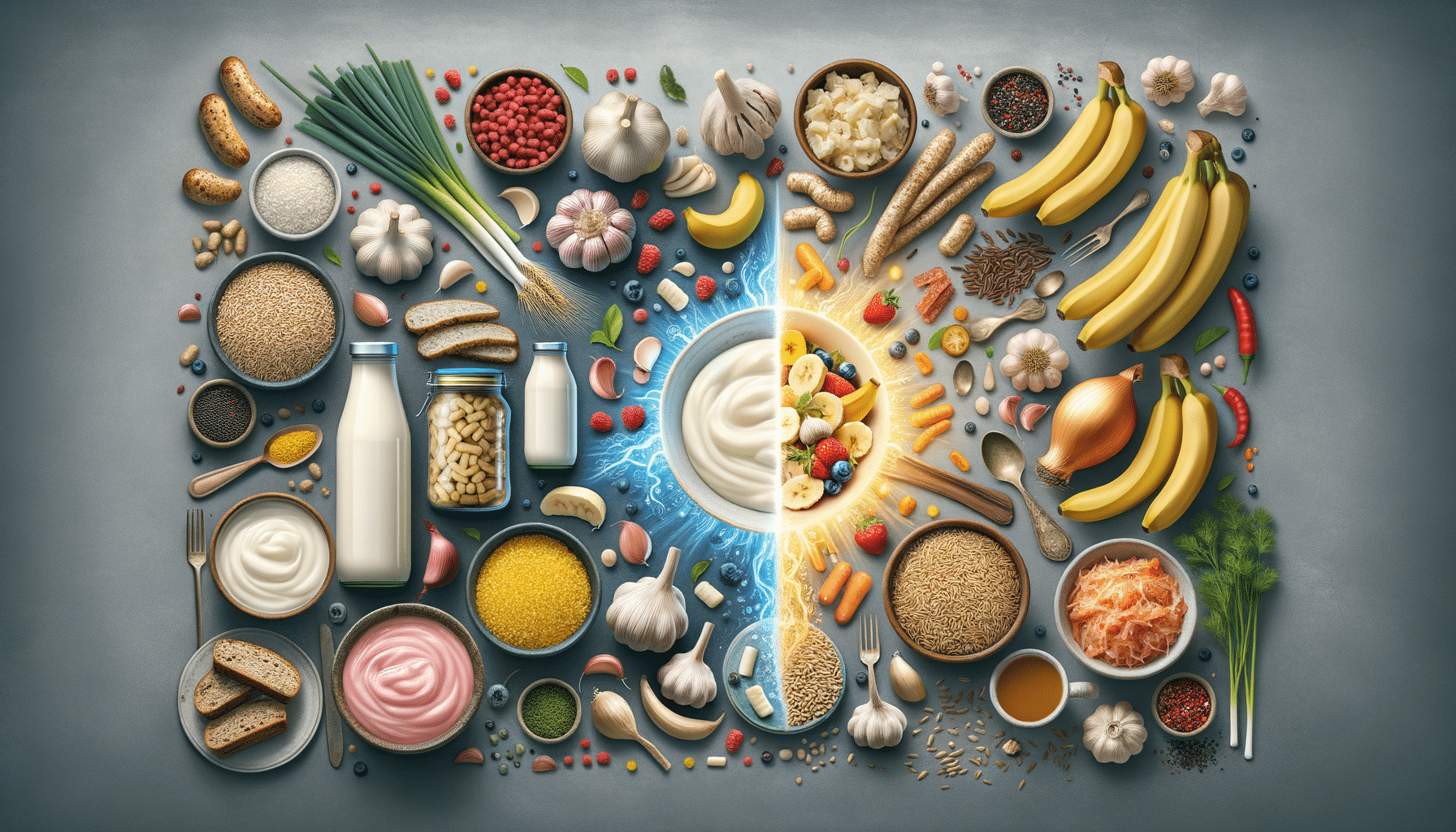
Improve Digestion and Energy Naturally with Better Gut Health
Introduction to Gut Health
In recent years, gut health has emerged as a pivotal aspect of overall well-being. A healthy gut not only aids in digestion but also plays a crucial role in maintaining the immune system, mental health, and even skin conditions. With the increasing awareness of its importance, many individuals are turning to dietary changes and supplements to support their gut health. This article delves into the world of prebiotics, probiotics, and gut-healthy foods, providing a comprehensive guide to enhancing your digestive health naturally.
Understanding Prebiotics
Prebiotics are non-digestible fibers that serve as food for beneficial gut bacteria. They are found in various plant-based foods and are essential for maintaining a balanced gut microbiome. Unlike probiotics, which are live bacteria, prebiotics aid in nourishing the existing good bacteria in your gut.
Common sources of prebiotics include:
- Garlic
- Onions
- Leeks
- Bananas
- Asparagus
These foods contain specific fibers such as inulin and fructooligosaccharides, which promote the growth of beneficial bacteria. Including prebiotic-rich foods in your diet can improve digestion, enhance nutrient absorption, and support a healthy immune system. Studies have shown that a diet rich in prebiotics may also help reduce inflammation and improve metabolic health, making them an integral part of a gut-friendly diet.
The Role of Probiotics in Gut Health
Probiotics are live microorganisms that provide numerous health benefits when consumed in adequate amounts. They are often referred to as “good” or “friendly” bacteria and are naturally found in fermented foods and supplements. Probiotics help restore the natural balance of gut bacteria, which can be disrupted by factors such as poor diet, stress, and antibiotics.
Some popular probiotic-rich foods include:
- Yogurt
- Kefir
- Sauerkraut
- Kimchi
- Miso
Incorporating probiotics into your diet can aid in digestion, boost immunity, and even improve mental health. Research indicates that probiotics may help alleviate symptoms of irritable bowel syndrome (IBS), reduce the risk of certain infections, and promote overall gut health. It’s important to choose a variety of probiotic strains to ensure broad-spectrum benefits for your digestive system.
Gut-Healthy Foods to Include in Your Diet
Beyond prebiotics and probiotics, certain foods are particularly beneficial for gut health. These foods contain essential nutrients and compounds that support a healthy digestive system and overall well-being.
Some gut-healthy foods to consider adding to your diet are:
- Whole grains: Rich in fiber, whole grains such as oats, quinoa, and brown rice help maintain regular bowel movements and feed beneficial gut bacteria.
- Leafy greens: Vegetables like spinach, kale, and Swiss chard are high in fiber and vitamins that support gut health.
- Nuts and seeds: Almonds, walnuts, chia seeds, and flaxseeds provide fiber, healthy fats, and antioxidants that promote a healthy gut.
- Berries: Blueberries, strawberries, and raspberries are packed with antioxidants and fiber that support a balanced gut microbiome.
Incorporating a diverse range of these foods into your diet can help ensure that your gut receives the nutrients it needs to function optimally. A balanced diet rich in gut-healthy foods can lead to improved digestion, increased energy levels, and better overall health.
Conclusion: Embrace Gut Health for Overall Wellness
Taking care of your gut is an investment in your overall health. By understanding the importance of prebiotics, probiotics, and gut-healthy foods, you can make informed choices that support your digestive system and enhance your well-being. A balanced gut contributes to improved digestion, a stronger immune system, and even a better mood. Remember, small changes in your diet can lead to significant improvements in your health, so start today by incorporating these gut-friendly options into your meals and experience the benefits of a healthier gut.


